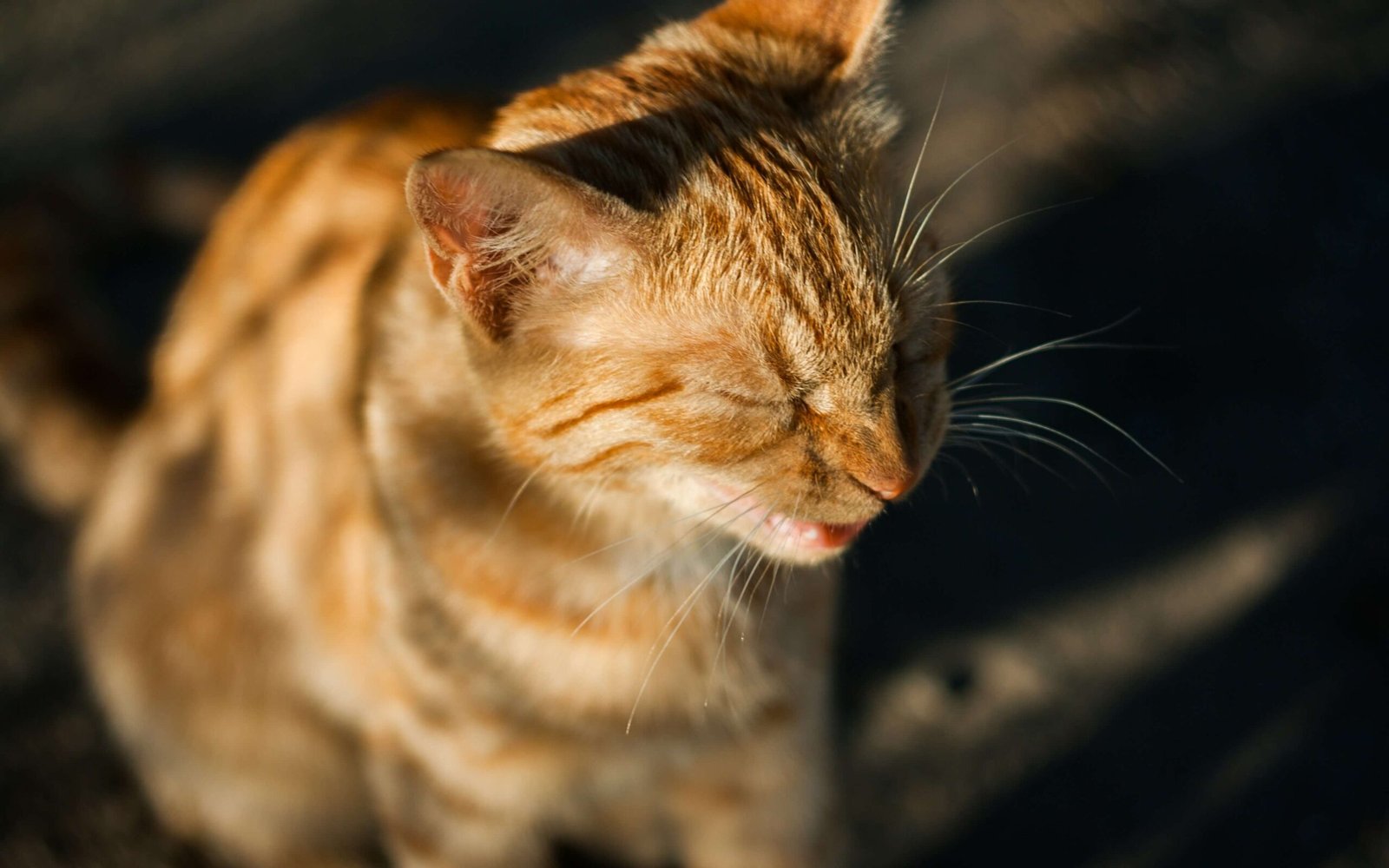Why Did My Cat Lose His Voice? Unpacking the Mystery Behind a Silent Feline
Cats are known for their expressive meows, chirps, and purrs, which they use to communicate with us and express their needs. So, when your usually vocal cat suddenly goes silent or sounds hoarse, it’s natural to feel concerned. A loss of voice in cats can stem from a variety of causes, ranging from harmless temporary issues to more serious health concerns. Understanding why your cat has lost his voice is the first step toward ensuring their well-being. In this blog post, we’ll explore the potential reasons behind this change, how to identify warning signs, and what steps you can take to help your furry friend regain their voice—or stay healthy despite the silence.
Common Causes of Voice Loss in Cats
A cat losing its voice can be triggered by several factors, many of which are related to their respiratory system or environment. Here are the most common reasons why your feline might have gone quiet:
Upper Respiratory Infections :
Viral or bacterial infections, such as feline herpesvirus or calicivirus, can cause inflammation in the throat and larynx, leading to voice changes.Laryngitis :
Irritation or inflammation of the larynx (voice box) can result in hoarseness or complete loss of voice, often due to excessive meowing or straining.Allergies or Irritants :
Exposure to smoke, dust, cleaning products, or other environmental irritants can affect your cat’s vocal cords and breathing.Physical Trauma :
Injury to the throat or neck area, whether from a fall, fight, or accidental pressure, can impact your cat’s ability to vocalize.Growths or Tumors :
Benign polyps or malignant tumors in the throat or larynx may obstruct airflow and alter your cat’s voice.
While some causes of voice loss are minor and resolve on their own, others require veterinary attention. Always monitor your cat for additional symptoms to determine the severity of the issue.
Common Causes of Voice Loss in Cats
A cat losing its voice can be triggered by several factors, many of which are related to their respiratory system or environment. Here are the most common reasons why your feline might have gone quiet:
Upper Respiratory Infections :
Viral or bacterial infections, such as feline herpesvirus or calicivirus, can cause inflammation in the throat and larynx, leading to voice changes.Laryngitis :
Irritation or inflammation of the larynx (voice box) can result in hoarseness or complete loss of voice, often due to excessive meowing or straining.Allergies or Irritants :
Exposure to smoke, dust, cleaning products, or other environmental irritants can affect your cat’s vocal cords and breathing.Physical Trauma :
Injury to the throat or neck area, whether from a fall, fight, or accidental pressure, can impact your cat’s ability to vocalize.Growths or Tumors :
Benign polyps or malignant tumors in the throat or larynx may obstruct airflow and alter your cat’s voice.
While some causes of voice loss are minor and resolve on their own, others require veterinary attention. Always monitor your cat for additional symptoms to determine the severity of the issue.
Check this guide 👉Most Vocal Cat Breeds: Best 7 Expert Tips!
Check this guide 👉Can Cats Learn Sign Language? Best 7 Expert Tips!

Possible Causes of Voice Loss in Cats | Signs to Watch For |
|---|---|
Upper respiratory infections | Sneezing, nasal discharge |
Laryngitis | Hoarseness, reduced meowing |
Allergies or irritants | Coughing, watery eyes |
Physical trauma | Swelling, reluctance to move |
Growths or tumors | Difficulty breathing, weight loss |
How to Help Your Cat Regain Their Voice
If your cat has lost their voice, there are several steps you can take to support their recovery while addressing the underlying cause. Here are some practical tips to help your feline friend feel better:
Keep Them Hydrated :
Encourage your cat to drink water to soothe their throat and prevent dehydration, especially if they’re recovering from an infection.Provide a Humid Environment :
Use a humidifier or place a bowl of water near a heat source to add moisture to the air, which can ease respiratory discomfort.Minimize Stress :
Create a calm, quiet space where your cat can rest without disturbances, as stress can exacerbate respiratory issues.Avoid Irritants :
Keep your home free of smoke, strong odors, and harsh chemicals that could irritate your cat’s throat and worsen their condition.Consult a Veterinarian :
Schedule a vet visit to diagnose the cause of the voice loss and receive treatment recommendations tailored to your cat’s needs.
By taking these steps, you can help your cat recover more comfortably and address any underlying health concerns effectively.
Preventive Measures to Protect Your Cat’s Voice and Health
Preventing voice loss and related health issues starts with proactive care and attention to your cat’s environment and well-being. Here are some preventive measures to keep your feline friend healthy and vocal:
Vaccinate Against Respiratory Infections :
Ensure your cat is up-to-date on vaccinations to protect against common viral and bacterial infections.Maintain a Clean Environment :
Regularly clean your home to reduce allergens like dust, mold, and pet dander that could irritate your cat’s respiratory system.Monitor Interactions with Other Cats :
Limit exposure to stray or sick cats that may carry contagious diseases affecting the respiratory tract.Provide a Balanced Diet :
Feed your cat high-quality food rich in vitamins and nutrients to support their immune system and overall health.Schedule Regular Vet Check-Ups :
Routine veterinary visits can help catch potential issues early and ensure your cat stays in optimal health.
By prioritizing these preventive measures, you can reduce the likelihood of your cat experiencing voice loss or other health problems.
Understanding the Role of Stress in Voice Loss
Stress can have a significant impact on your cat’s health, including their ability to vocalize. Cats are sensitive creatures, and changes in their environment or routine can lead to stress-related voice loss. Here’s how stress might affect your feline friend and what you can do about it.
Environmental Changes :
Moving to a new home, introducing a new pet, or rearranging furniture can cause stress that affects your cat’s vocal cords.Loud Noises :
Sudden loud sounds like thunderstorms, fireworks, or construction work can startle your cat and lead to temporary voice changes.Social Isolation :
Cats that feel lonely or neglected may experience stress, which can manifest as hoarseness or reduced vocalization.Overstimulation :
Excessive handling, play, or interaction with other pets can overwhelm your cat and strain their voice.Health Anxiety :
Cats in pain or discomfort may become stressed, further exacerbating their inability to vocalize properly.
By identifying and minimizing stressors, you can help your cat feel more secure and potentially restore their voice over time.
How to Differentiate Between Normal and Abnormal Voice Changes
Not all voice changes in cats are a cause for concern, but it’s important to differentiate between normal variations and signs of an underlying issue. Here’s how to tell the difference:
Temporary Hoarseness :
Occasional hoarseness after excessive meowing or excitement is usually harmless and resolves quickly.Seasonal Allergies :
Cats may experience mild voice changes during allergy seasons due to environmental irritants like pollen or dust.Persistent Silence :
If your cat remains silent for more than a day or two without an obvious reason, it could indicate a deeper problem.Behavioral Shifts :
A sudden change in personality, such as increased aggression or withdrawal, alongside voice loss may signal illness or discomfort.Physical Symptoms :
Look for additional signs like coughing, sneezing, or difficulty breathing, which suggest a medical issue rather than normal variation.
Understanding these distinctions can help you determine whether your cat’s voice loss is a minor issue or something that requires veterinary attention.
Common Myths About Cats Losing Their Voice
There are several misconceptions about why cats lose their voice, which can lead to confusion or delayed care. Let’s debunk some of these myths to help you better understand your cat’s condition.
Myth: Cats Never Lose Their Voice Unless They’re Sick :
While illness is a common cause, stress, irritation, or overuse can also lead to temporary voice changes.Myth: A Silent Cat Is Always in Pain :
Some cats naturally go through periods of silence, especially if they’re older or less vocal by nature.Myth: Voice Loss Is Always Permanent :
Most cases of voice loss are temporary and resolve once the underlying cause is addressed.Myth: You Should Ignore Temporary Hoarseness :
Even short-term hoarseness should be monitored, as it could develop into a chronic issue if left untreated.Myth: Only Outdoor Cats Lose Their Voice :
Indoor cats are just as susceptible to respiratory infections, allergies, or stress-related voice changes as outdoor cats.
By understanding these myths, you can approach your cat’s voice loss with clarity and confidence, ensuring they receive the care they need.
Frequently Asked Questions About Cats Losing Their Voice
Is it normal for a cat to lose its voice temporarily?
Yes, short-term voice loss can occur due to excessive meowing, mild irritation, or minor infections, but persistent hoarseness should be evaluated.
Can allergies cause my cat to lose its voice?
Yes, allergies to dust, pollen, or household irritants can inflame the throat and affect your cat’s ability to vocalize.
Should I worry if my cat stops meowing but seems fine otherwise?
While occasional silence isn’t always a concern, prolonged voice loss or changes in behavior warrant a vet visit to rule out underlying issues.
How long does it take for a cat to regain its voice after an infection?
Recovery time varies depending on the severity of the infection, but most cats regain their voice within a few days to weeks with proper treatment.
Can physical injuries cause voice loss in cats?
Yes, trauma to the throat, neck, or chest can damage the vocal cords or larynx, leading to temporary or permanent voice changes.
Final Thoughts: Supporting Your Cat Through Voice Loss
In conclusion, a cat losing its voice can be unsettling, but understanding the potential causes and taking proactive steps can help you address the issue effectively. Whether it’s a minor irritation or a sign of a more serious condition, monitoring your cat’s behavior and seeking veterinary advice when needed is key to ensuring their well-being. Remember, your feline friend relies on you to advocate for their health, and even small changes in their habits can provide valuable insights. With love, care, and attention, you can help your cat regain their voice—or adapt to life without it—while keeping them happy and healthy for years to come.
Can I Give My Cat Midol? Best 7 Expert Tips! – Learn the risks, symptoms, and safe alternatives to keep your cat healthy and avoid toxic reactions.
Can I Give My Dog Midol? Best 7 Expert Tips! – Discover the risks, safe alternatives, and expert advice to keep your dog safe from accidental poisoning.
Maximum Weight for Cats on Planes: Best 7 Expert Tips! – Learn airline policies, tips to stay compliant, and ensure safe travels for your feline friend.
Max Weight for Dogs on Planes: Best 7 Expert Tips! – Discover airline weight limits, safe travel tips, and solutions for flying with your dog stress-free.





